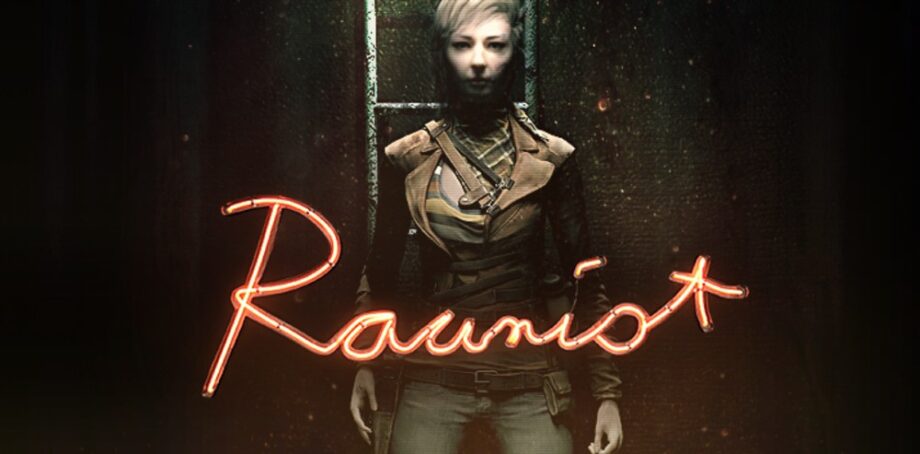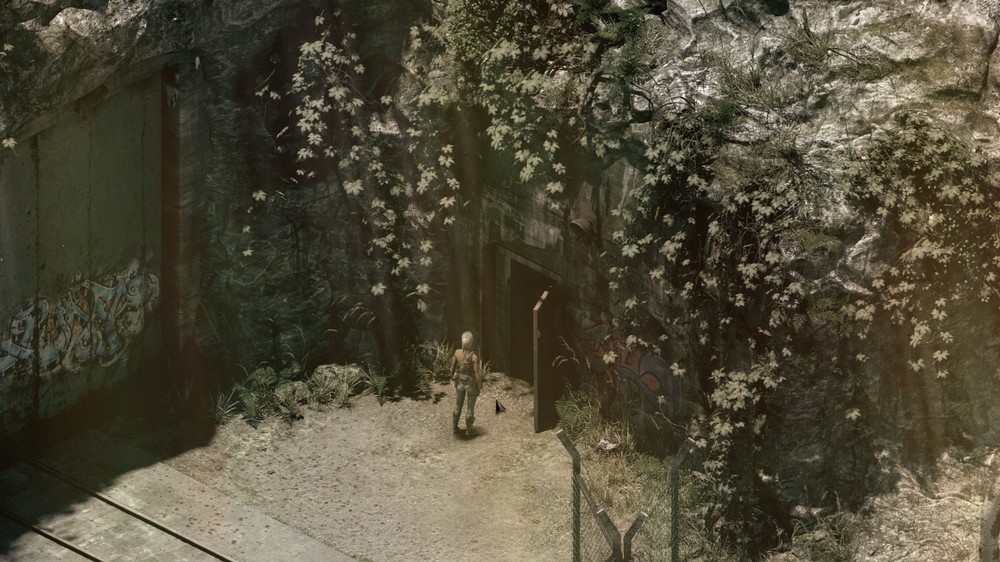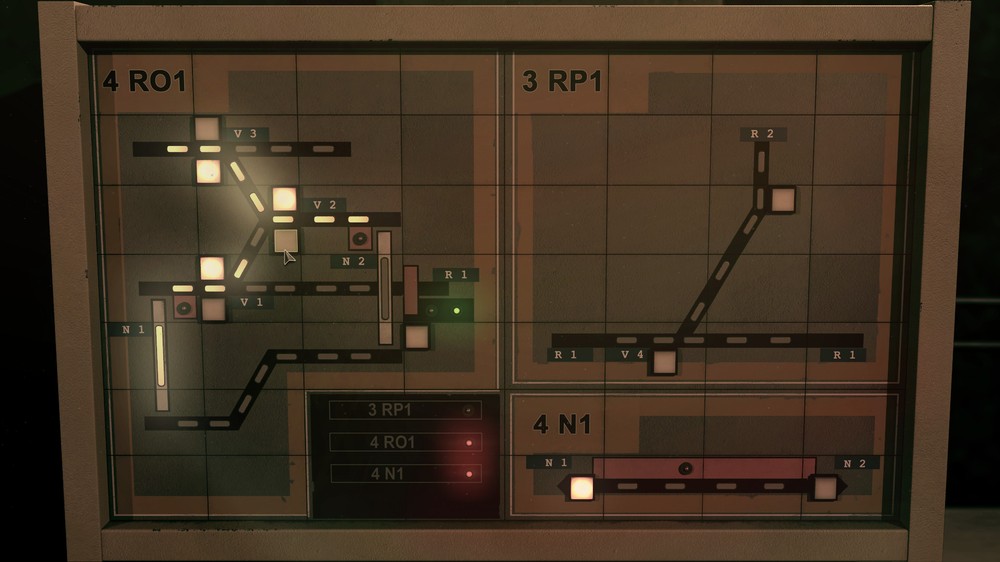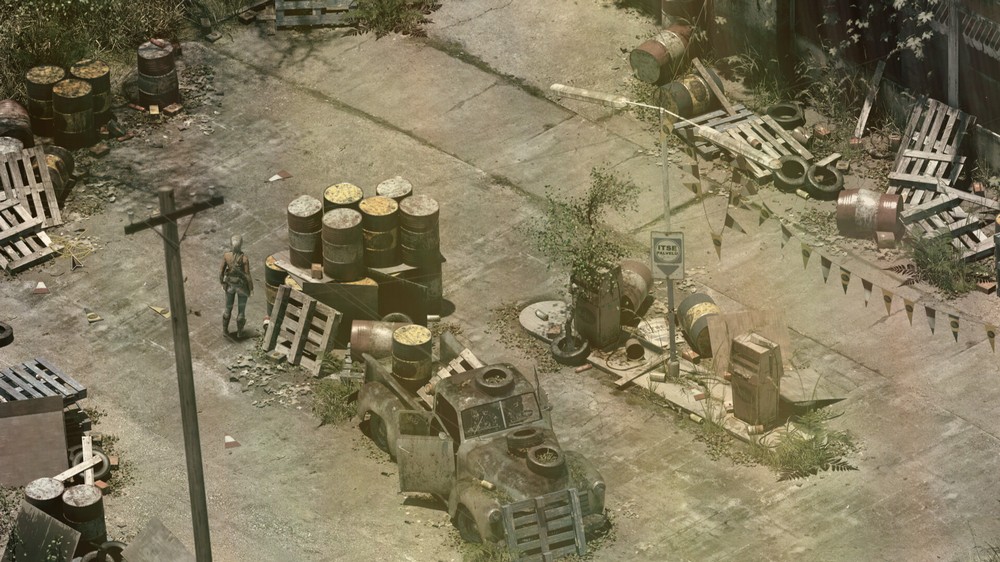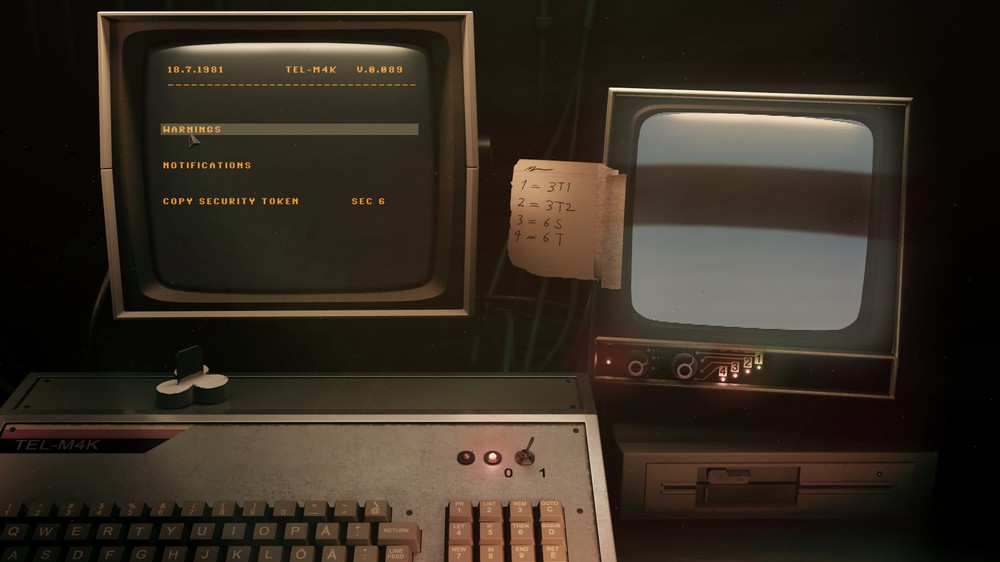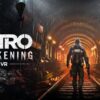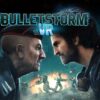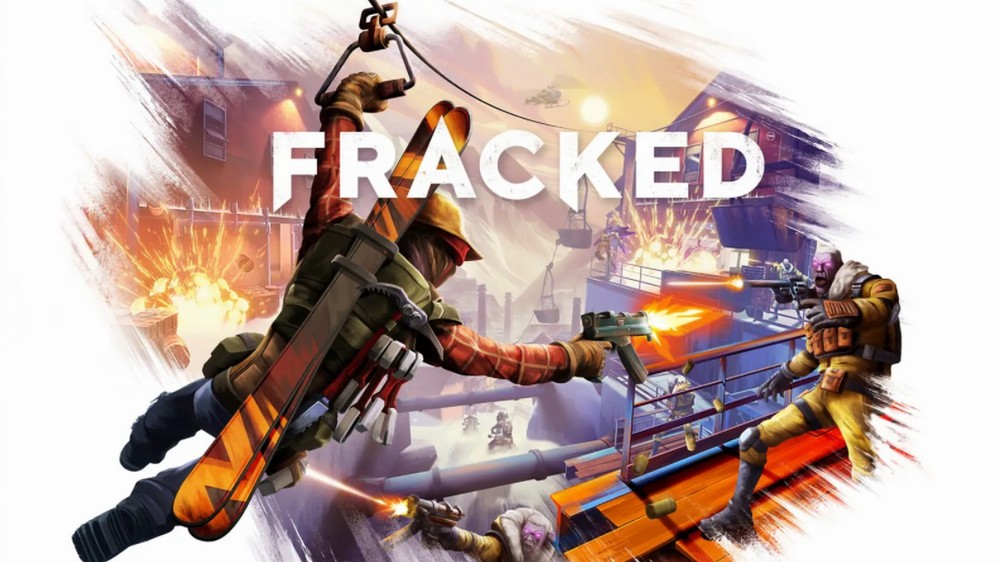Rauniot opens with a Latin proverb, “Homo homini lupus” meaning “Man to man is wolf.” Heading into this isometric post-apocalyptic adventure, you can’t help but notice the influences of Fallout. From the opening proverb that doubles as the game’s thesis, to the comedic moments and tragic characters you meet throughout your playthrough. Developer, Act Normal Games, handedly captures the feeling of playing an old computer game. It comes off a bit short, feeling more like a single mission ripped from a bigger game, but the blend of challenging puzzles and the intrigue of this world are enough to leave you wanting more.
As Aino, players are on the hunt for Toivo, a member of your community who vanished while on a mission to wrangle up a nearby train. Tracked to an abandoned gas station, players begin their search in the mostly empty surrounding areas. Aino’s past is purposely left vague. Rauniot instead focuses on building the world, with an opening monologue that includes the aforementioned proverb. Portions of this opening may suffer from poor translations, but that doesn’t take away the weight of the situation and just how bleak the world is. Aino is a result of this new world. Her coldness toward others immediately resonates. We’re given an early moment of vulnerability when Aino is snared in a trap, but her survival skills quickly get her out of that sticky situation.
Rauniot plays around with how it does dialogue and cutscenes. Most dialogue plays out in widescreen cutscenes that focus on Aino’s eyes. These moments give us some insight to how Aino is feeling about the task at hand or something in the environment. In one such scene, Aino explores the site of an accident and makes assumptions about what caused the car crash. I was at first worried about these scenes occurring way too often and feeling detached from the rest of the experience, but the game’s willingness to play around with the format, kept things interesting. Later in the game, Aion is trying to gain access to a private community. In this scene you can see the eyes of Aion and the eyes of the guard who’s explaining the rules of the community. Moments into the guard’s explanation, his camera shifts down toward his neck where he slides his finger across his throat, as a warning. Intentional or not, the game is filled with hilarious moments like this. It really is something special to watch a somber scene playout, just for it to end with a sight gag from out of left field. In lesser hands it could be eyeroll inducing, but Act Normal Games finds just the right balance.
The world building done throughout Rauniot stands out to me. While there are only a few characters you meet through the short campaign (I clocked out around three hours) their short time in-game leaves a mark. There’s no hardnosed combat here, but the game does an amazing job of hinting at the things these characters are capable of when they’re not having a pleasant conversation with you. Children’s drawings found in the surrounding area hint at some of the horrifying things that have happened nearby. A little digging through someone’s hideout or small tidbits that come out during conversations don’t outright confirm your suspicions, but they don’t put them to rest either. The game also takes a pretty distinct stance on any characters looking for greener pastures. There’s a reason you never meet any of these characters, and it’s not because they found happiness and hope in the new world. It’s a thematic choice that fits perfectly into the overarching narrative.
If you’ve seen one isometric post-apocalyptic game, you have an idea of what you’re getting into with Rauniot. The northern Finland setting is riddled with your typical post-apocalyptic staples like abandoned houses overtaken by vegetation, mass graves, and the low brown haze over everything, giving it that dirty feeling. I sound like I’m diminishing Rauniot for going in this direction, but honestly it works here. There’s a reason Fallout and other series lean on that color palette when it comes to creating a bleak world. It’s a decision that’s been catching flack since the Xbox 360 era, but if anything is more tired than the brown haze, it’s that line of criticism.
A majority of your time in the game is spent solving puzzles. These range from fetch quests to pulling levers and switches. Some of the puzzles are challenging, but they never got to a point where I needed a notebook by my side. In most cases, the puzzle fell to trial and error, as I narrowed down the possible solutions. Speaking of notebooks, the in-game notebook menu is one of the most useful I’ve seen in a game this scale. You can use it to track all the survivors you’ve met and view the map of places you’ve been. You can also fast travel from this map, which is handy, considering the game leans a bit too heavy on the fetch quests. You have some freedom that can help alleviate some fetching, but these decisions can also alter the ending you receive (of which there are two total).
The game ends almost as fast as it started. After exploring a couple dozen areas and solving nearly as many puzzles, players are met with one of the two endings, both of which don’t paint a pretty picture for the future of the world or Aino. The “good” ending does make an argument for making connections and being human, even if we are all doomed in the end. The game is left pretty open to a future adventure with Aion. I would just hope for a little more time in the world if Act Normal Games chooses to return. They’ve proven they have the chops to create an interesting world with a handful of characters, my selfish nature just wants more.
A fair warning to players who depend on autosave, there is no autosave here, so save often. That said, the game ran smoothly for most of my time with it. There are a few later areas where I double clicked into the next area to skip having to watch Aion walk through another room. In a normal instance this skips you to the next room, in these few later areas that game momentarily froze, leaving me to wonder if I just lost the last hour of progress. The game never crashed, but this is still enough for me to push players to save and save often. Plus, the save screen has a very nostalgic feeling and is oozing with 90s PC game vibes.
Rauniot is a bite-sized game that gets the vibes right and has some good quality of life decisions that keep it from becoming tedious. While I’d love a longer experience, what is here is mostly great. I don’t know if its comedic moments are all intentional, but it pulls them off perfectly while leaning into the dog-eat-dog mentality of a world at its end.

